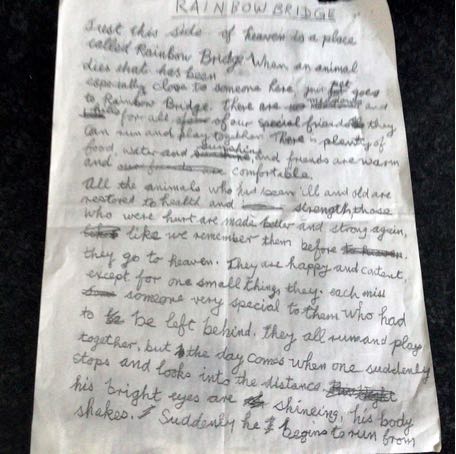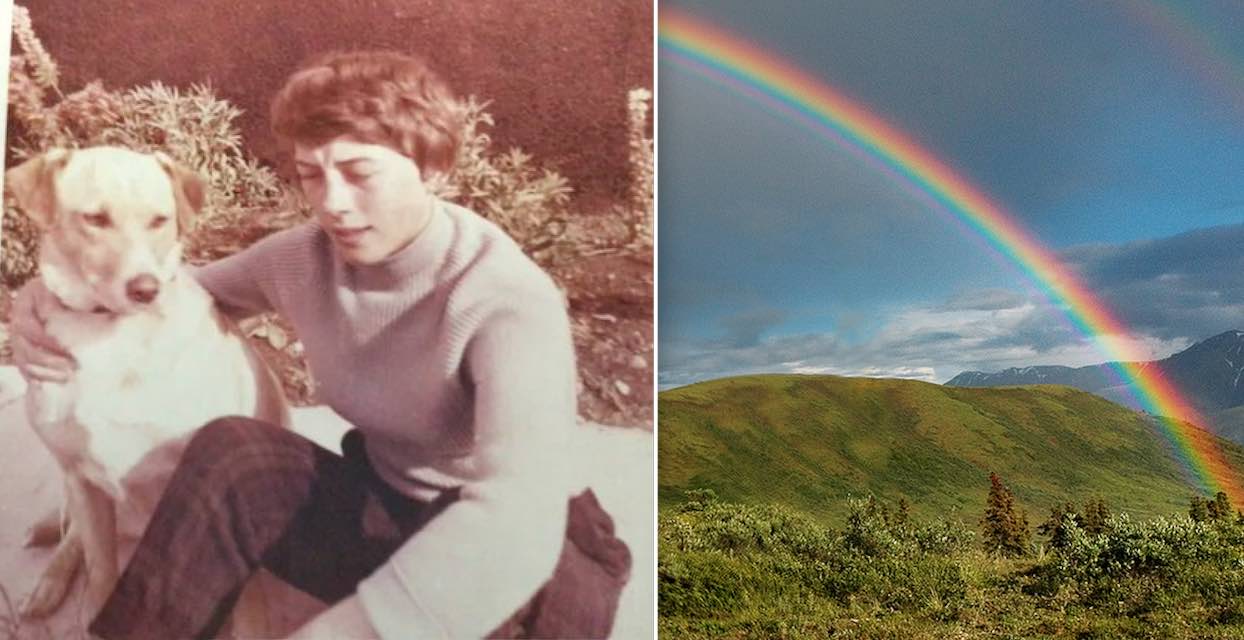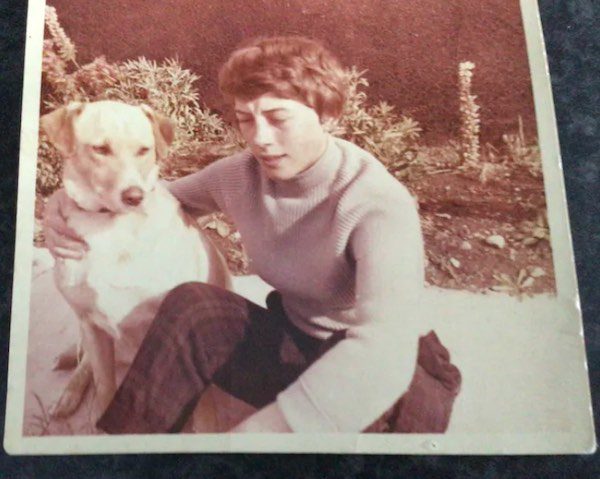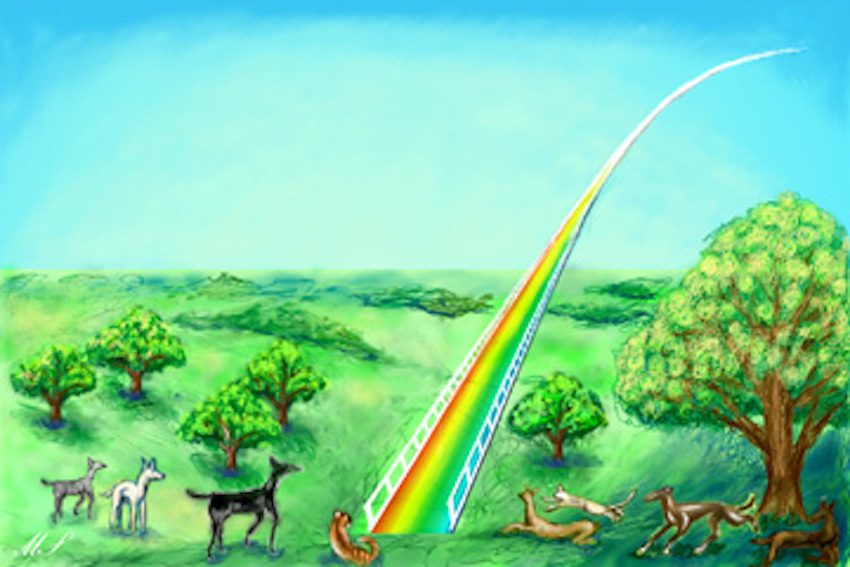The author of the treasured and much beloved ‘Rainbow Bridge‘ poem has at long last been found after 64 years of anonymity. Arizona art historian and author Paul Koudounaris was determined to track down the author and after many years of sleuthing he tracked the poem back to Edna Clyne-Rekhy, a Scottish woman, who wrote the poem when she was 19 years old.
Koudounaris recently interviewed Clyne-Rekhy who told him about the origins of the poem, that she was grieving for her Labrador Retriever, Major at the time. She originally penned the poem back in 1959 after he died. She was inconsolable in her grief and asked her mother for help. Her mom suggested that she write down how she was feeling.
Clyne-Rekhy followed her mother’s advice and scribbled out the first sentence, “Just this side of heaven is a place called Rainbow Bridge.” She says that the words then poured out of her.
“He died in my arms, actually,” she told the National Geographic of Major in a recent interview. “I dearly loved him.”
She was never inclined to publish the poem despite being encouraged by her husband years later, she told Koudounaris, feeling the poem was a private memory. But she did type out a few copies for some friends and shared it with them. And those friends must have shared copies with their friends and so on until one day a copy was sent to Dear Abby in the United States and it was published in her column in 1994, reaching 100 million readers. No author was listed because, by then, Clyne-Rekhy’s authorship was long lost.
Different versions began appearing online as the Internet grew and the origins of the poem grew even more murky but more and more copies circulated amongst pet lovers. During his sleuthing, Koudounaris discovered that the United States Copyright Office received 15 claims of authorship!
But one consistent thread over the many years has been that the poem is beloved. The poem has taken a strange, meandering journey since Clyne-Rekhy wrote it down on that piece of paper so many years ago, and which she still has in her possession. Now 82 years old, Clyne-Rekhy marvels at how her poem has affected millions of people and provided so much comfort to them.
“I’m absolutely stunned,” she told the National Geographic. “I’m still in a state of shock.”

Edna Clyne-Rekhy’s original handwritten poem from 1959
But for Koudounaris, it makes sense. He feels the theme of the poem fits in with Christian theology, which, in the past, has excluded animals as having no soul.
“‘Rainbow Bridge’ provides the missing piece for people who have had to live with this anxiety that their animal is not good enough to deserve an afterlife,” Koudounaris told the National Geographic. “It gives us a reason to hope.”
However, this outlook has shifted dramatically in recent years, as when Pope Francis declared all animals go to Heaven.
But no matter what a person’s religious belief or background, the Rainbow Bridge Poem provides comfort, simply for what it suggests. Many readers have pointed out that the idea that they will see their beloved pet again provides them comfort.
One person on reddit commented on the poem, “I’m not a religious person, but the thought that maybe there’s an afterlife and I get to see my little friend again makes me very happy.”
“I love that poem. I must have read it at least 100 times over the years,” wrote another reader. “And every time, I lose it; it brings back the pain of every pet I’ve lost. But it’s just so beautiful.”
To read more about how Koudournaris managed to track Clyne-Rekhy down, her thoughts on her poem’s popularity and what she has been up to since writing it, you can read Koudounaris’ wonderful article here.
And read Clyne-Rekhy’s original version of Rainbow Bridgehere.






